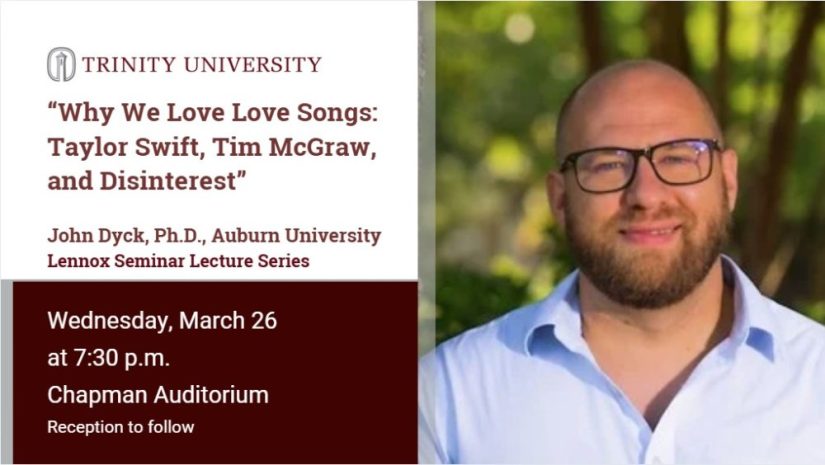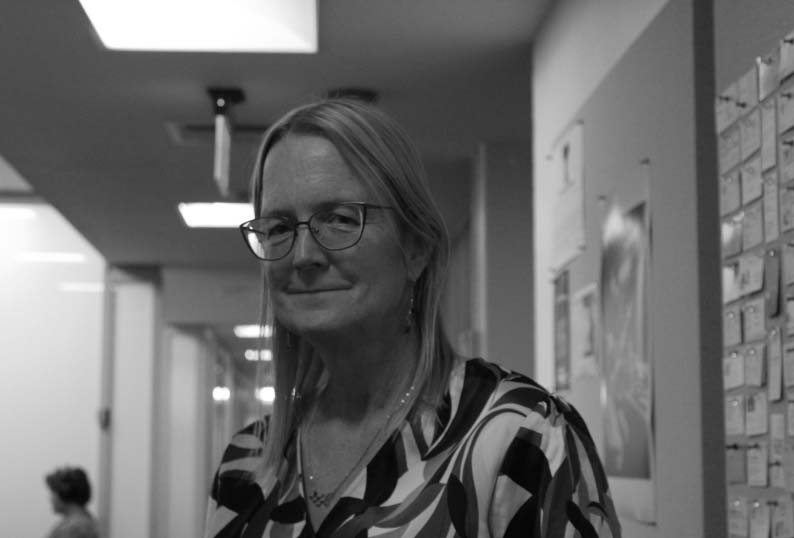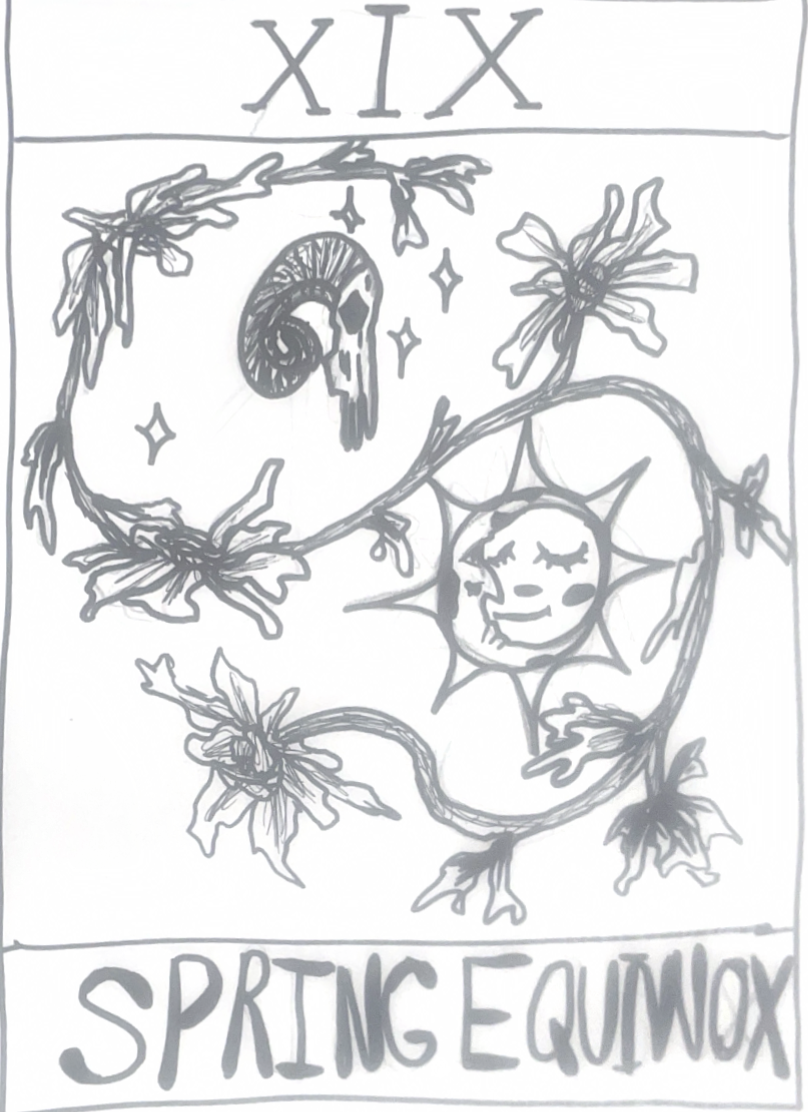The concept of the “˜nerd’ has varied in meaning and been stigmatized for many years. Trinity University is known for the high academic standards of both its curriculum and its students. Extracurricular activities vary from academic to athletic to purely entertainment-oriented. What does being a nerd mean on the Trinity campus? Is there such a thing as nerd culture here?
“I think there is,” said Mark Lewis, professor of computer science. “The nerd culture, there is an eccentric nature to it. People who kind of do things a little bit differently, they’re very into things, but it’s not the standard stuff; a lot of it is science and technology; that’s kind of what I picture as being a nerd culture.”
Students have a similar view of what can be considered as nerdiness and nerd culture.
“Nerd culture, I think is technically anything that “¦ helps people know and be able to talk to each other and do things together, that typically people consider on the nerdy side. There’s definitely a massive nerd culture on campus, and a lot of it is very easily found. A lot of people are very open and obvious about it,” said junior Michael Batista, co-president and co-founder of the Battle Elite Anime, Pokémon and Video Game Club; unofficial president of the Magic the Gathering Club; and captain of the Swashbuckler substance-free hall.
“Nerd culture is kind of doing something that you’re passionate about in an obsessive amount, which is not necessarily a bad thing, but I guess it can be seen as something that doesn’t contribute to society “¦ Nerd culture is inspired by passion, and it’s a little bit silly, but that’s the entire point of it. It’s there to have fun,” said junior Charlie Stein, co-president of Battle Elite and member of the Swashbuckler hall.
“People can be really nerdy about anything. I think people who are obsessed with sports are nerds, bigger nerds than me!” said Sarah Walters, member and former captain of the Swashbuckler hall.
According to Lewis, Stein and Batista, some “˜nerdy’ student organizations include the Association for Computing Machinery; Battle Elite Anime Pokémon and Video Game Club; Magic the Gathering Club; Japanese Culture Club; and the Swashbuckler hall.
Jennifer Henderson, professor and chair of the communication department, believes that the definition of nerd culture can vary throughout time.
“I think that the definition of nerd culture changes depending on who you’re asking and where you are. I would say that one of the most important things is that nerd culture has become so much a part of mainstream pop culture today that it doesn’t carry many of the same negative stereotypes that it used to,” said Henderson.
Henderson teaches a course on media fandoms, a culture she believes is also present at Trinity.
“I think I see a lot of fandom culture on campus, people who are fans of things, and I would say that that’s everything from media products to sports teams, and I think that people are really proud of their fandoms and not afraid to show them. “¦ In all fandom studies, there aren’t definitions of nerd. They talk about geek culture, but they usually do that outside of the academic realm. So I would say that there aren’t definitions in academic studies about what constitutes a nerd or a geek or any of the terms that we use,” said Henderson.
When defining “˜nerd culture’ and its presence in today’s society, Aaron Delwiche, professor of Communication, makes an interesting point:
“[Nerd culture is] a relic of the twentieth century “¦ I think there was a time when I was in high school where things like comic books, computers [and] video games were considered nerdy. So when I got into high school I [“¦] just denied connection to those things, which was really stupid because it was stuff I really cared about. We had this whole dichotomy where you [had] the nerds and the football players, and these categories that are all rigid, and I think that’s changed a lot,” Delwiche said.
The terms “˜nerd’ and “˜geek’ are often used interchangeably, but their individual definitions are the subjects of much debate.
“That’s apparently a highly debated subject. Supposedly one of them is smart and the other is not,” said Walters.
“For the most part they’re interchangeable but I think, technically, the nerd is supposed to be the [one] fixated on more school-type things, and geek is more fixated on Dungeons and Dragons and video game type things. Both of them are considered quirky and weird, I guess,” said Batista.
“I think [a] geek is someone who is really into something. You can say someone is an economics geek or an anthropology geek. It was more about obsessiveness. So sometimes it’s used as a synonym but sometimes a little different,” said Delwiche.
When asked what nerd culture’s place is at Trinity, some faculty and students seem to conclude in favor of general acceptance.
“I think that the campus is very accepting,” Lewis said. “You have quite a few students who feel comfortable here and are part of whatever counter-counter-culture group they have to be part of.”
“Everybody’s got a little bit of a closet nerd in them, whether they’re willing to admit it or not!” said Walters.
“I think Trinity is a small place where people try very hard to get along with one another. So I think that we see fewer of the divisions that we hear about in high school. The fact that you have to be academically talented to come to Trinity levels the playing field. So, I just don’t think that what is traditionally considered a nerd is a negative at Trinity,” said Henderson.
“People seem less uptight about identity right now. At least in the bubble of Trinity, people seem less uptight about drawing clear lines or pushing people into boundaries. “¦ I don’t think cultural change happens overnight, but I think that people who think comic books and video games are nerdy are on the wrong side of history,” said Delwiche.
Junior Mikaela Hawk, a self-identifying “˜non-nerd,’ agrees: “I definitely do not identify as a nerd, but I am very accepting of nerd culture even though I don’t really do nerdy activities. I do hang out with people that do nerdy activities. I think that says a lot about accepting nerd culture here at Trinity, because even people who don’t do nerdy things are still friends with people who do. They even show up to the events to support them.”
For all nerds and closet nerds out there, students and faculty have an important message:
“Come and play with us!” said Stein.
“We’re proud and loud and it’s very easy to identify and make friends with people who have the same interests [as you do],” said Batista.
“Embrace your nerdiness! You’re on a college campus. This is supposed to be a place of intellect and learning and being eccentric and whatnot, and you guys should fit right in. In fact, if anything, you guys should be the population that leads the campus in many ways,” said Lewis.
“The basic premise of what we do at a university is [based] on freedom of speech, curiosity, asking questions, and not having doors slammed in our face if we’re interested in things. “¦ To say that being a nerd is a bad thing or that being interested in these topics is a bad thing is very close-minded and it’s the opposite of what Trinity is about [and] what this country is supposed to be about: free speech, free ideas,” said Delwiche.







